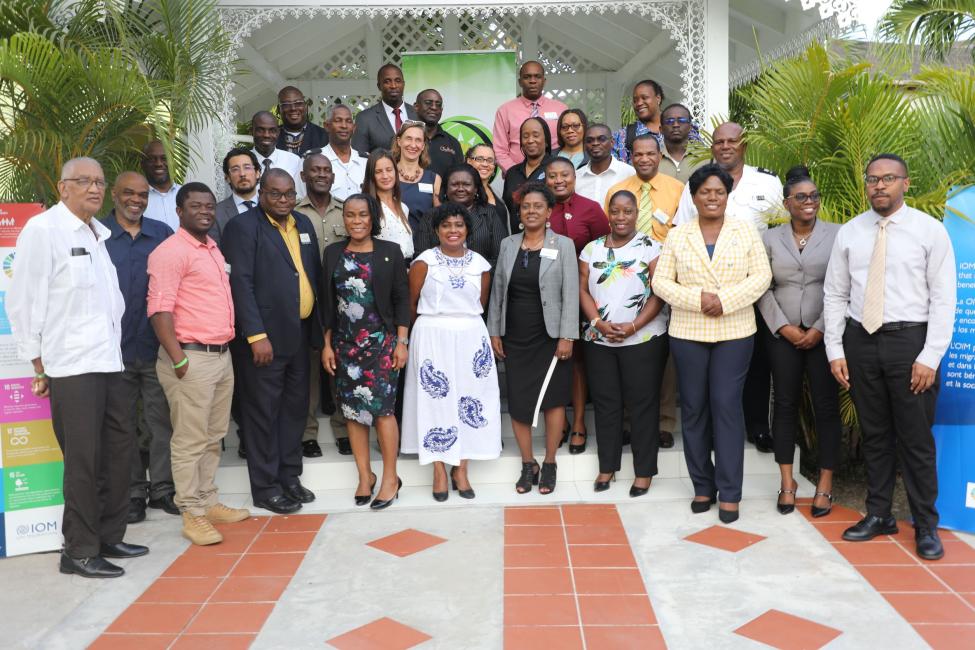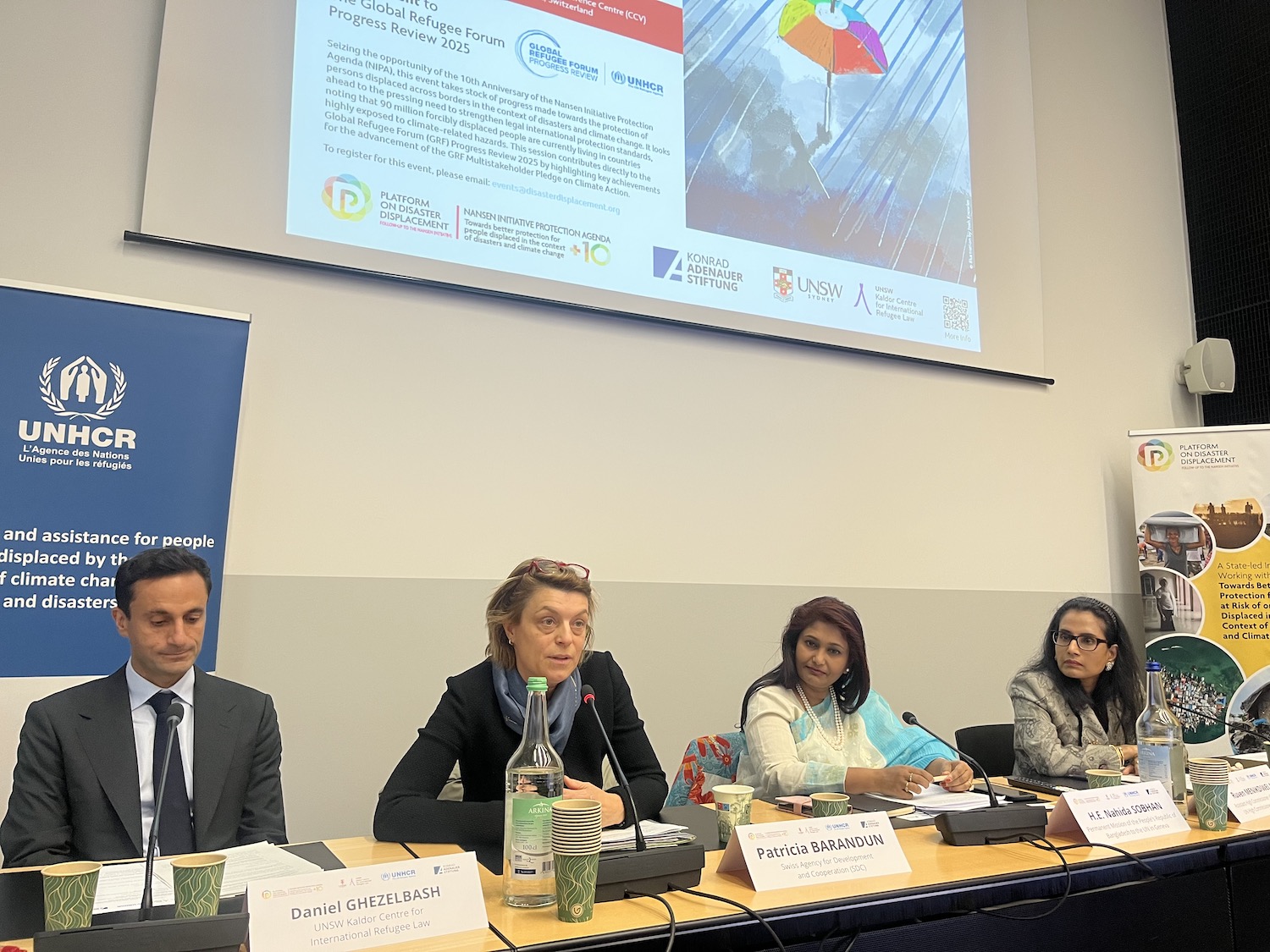OECS Countries Plan for Management of Cross-border Movements Due to Disasters and Climate Change

This article was originally published on the website of IOM’s Regional Office for Central, North America and the Caribbean on 25 March 2023
25 March 2023 – Member States of the Organisation of Eastern Caribbean States (OECS) are now one step closer to having a common protocol for cross border evacuation and displacement in the context of disasters, environmental degradation and climate change. Representatives of the governments of the Member States met in a hybrid event hosted in Saint Lucia, between 21-22 March 2023 to consider the best practices already demonstrated in past responses in the OECS, and to work together to draft protocols that are people-centred, comprehensive, context-specific, and prevention oriented, and are fit for purpose based on the principles of the human security approach.
During the 2-day workshop, 43 technical officers came together to propose context-specific ways to deal with cross-border movements of people into or out of their countries due to disasters, environmental degradation and climate change. Officers represented the fields of disaster management, environment, foreign affairs, immigration and national security, representatives of national Red Cross societies, and of regional agencies such as the Caribbean Community Implementation Agency for Crime and Security CARICOM IMPACS, the Caribbean Disaster and Emergency Management Agency (CDEMA) and the OECS, the Platform on Disaster Displacement (PDD) and UN entities such as the Human Security Unit, UN Framework Convention for Climate Change (UNFCCC) and the International Organization for Migration (IOM).
Recent devastating events, Hurricanes Irma and Maria (2017), and the eruption of the La Soufriere volcano in Saint Vincent & the Grenadines (2021) provided many learning opportunities worth sharing across the region, and made for practical understanding of the implications of disasters, environmental degradation and climate change on affected countries and on countries that host displaced people, the complex effects on the lives of individuals affected, and ways in which these can be managed for improved human security.
All participants acknowledged the need to plan for cross-border displacement in the event of disasters, and how Member States of the OECS countries could collectively manage these events in a manner that would not overburden states, and still protect and empower affected people in such eventualities. Participants left with a commitment to fine-tune a proposed Ministerial Declaration on human mobility in contexts of disasters, environmental degradation, and climate change.
Participants contributed to review of draft protocols to outline all the steps to be considered by countries receiving evacuees displaced due to disaster or migrating due to environmental factors or climate change, and also steps applicable to countries directly impacted and therefore with citizens potentially displaced to other countries. Participants left the workshop with a commitment to also provide comments to fine-tune a proposed Ministerial Declaration on human mobility in contexts of disasters, environmental degradation, and climate change.
The workshop “Mainstreaming the Human Security Approach to Environmental Migration and Disaster Displacement” was organized by the IOM Dominica office as part of a Joint Programme under the leadership of the UN Resident Coordinator Office for Barbados and the Eastern Caribbean and was held in Saint Lucia in partnership with the OECS and with funding from the UN Trust Fund for Human Security (UNTFHS).
For information on IOM and its work in the Eastern Caribbean – call, text or WhatsApp (767) 275-3225 or email malleyne@iom.int





